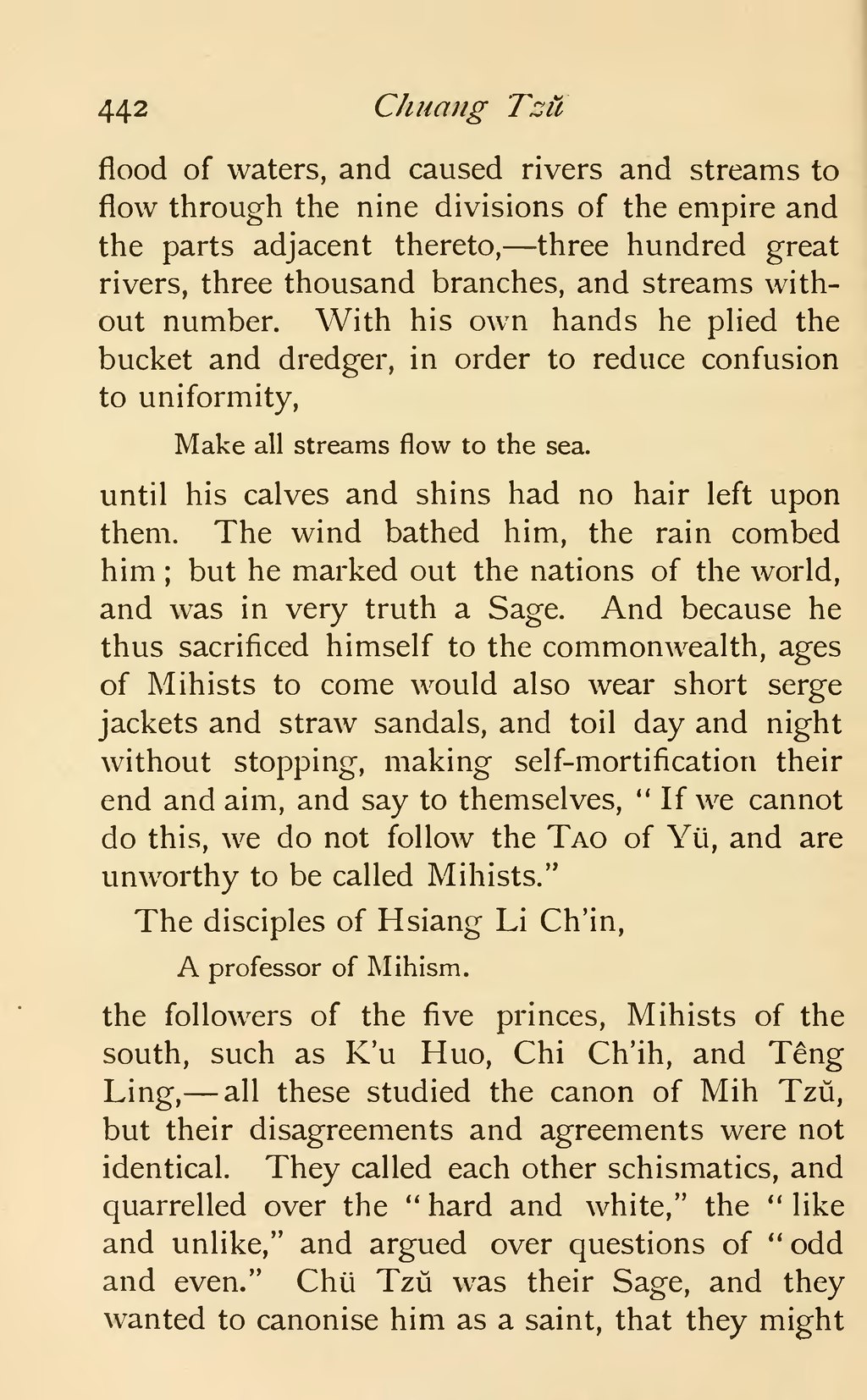flood of waters, and caused rivers and streams to flow through the nine divisions of the empire and the parts adjacent thereto,—three hundred great rivers, three thousand branches, and streams without number. With his own hands he plied the bucket and dredger, in order to reduce confusion to uniformity.
- Make all streams flow to the sea.
until his calves and shins had no hair left upon them. The wind bathed him, the rain combed him; but he marked out the nations of the world, and was in very truth a Sage. And because he thus sacrificed himself to the commonwealth, ages of Mihists to come would also wear short serge jackets and straw sandals, and toil day and night without stopping, making self-mortification their end and aim, and say to themselves, "If we cannot do this, we do not follow the Tao of Yü, and are unworthy to be called Mihists."
The disciples of Hsiang Li Ch'in,
- A professor of Mihism.
the followers of the five princes, Mihists of the south, such as K'u Huo, Chi Ch'ih, and Têng Ling,—all these studied the canon of Mih Tzŭ, but their disagreements and agreements were not identical. They called each other schismatics, and quarrelled over the "hard and white," the "like and unlike," and argued over questions of "odd and even." Chü Tzŭ was their Sage, and they wanted to canonise him as a saint, that they might
